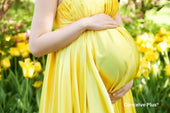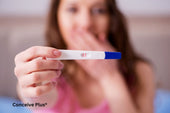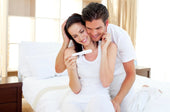What Does It Mean If You Had Sex During Ovulation and Not Pregnant

So many people feel bummed out and helpless after they had sex during ovulation and not pregnant. It’s tempting to assume that you’ve cracked the code by pinpointing your fertile window, then everything should just magically line up. But biology rarely follows a tidy blueprint. You end up with racing thoughts, like why mi not getting pregnant even though you’re sure you did all the recommended steps. If that sounds familiar, you’re definitely not alone. This process can be full of complex twists and turns. Each person’s journey is unique, but here we’ll try to dig through the main factors that might be standing in the way. No cookie-cutter solutions—just an attempt to help you see possible reasons so you can better navigate next steps.
The Challenge of Timed Intercourse
There’s a strong belief that timing alone rules everything. People are told to focus on the fertile window or use ovulation kits to zero in on the right days. Yet even if you had sex during fertile days and still not pregnant why, it doesn’t always mean your timing was actually off. Fertility isn’t strictly mechanical. Two major components must coincide: a healthy egg and healthy sperm. And that’s only the beginning. Sometimes everything feels carefully planned—maybe you tracked cervical mucus or used an app that flagged ovulation. Still, the test might come back negative. It’s not about blaming yourself but recognizing that numerous smaller puzzle pieces have to fit together to acheive a pregnancy. Don’t feel shame if it hasn’t worked yet.

Why Miscalculation Happens So Often
It’s surprisingly easy to misread your body’s signals. If your cycle is irregular, it’s tough to judge exactly when your egg’s released. That confusion might lead to a scenario of had sex during LH surge but not pregnant. Even basal body temperature charts can show patterns that aren’t as precise as we’d like. You might think the surge indicated your ovulation was happening right away, only to learn it occurred a bit earlier or later than you expected.
Another common factor: the fertility window can shift due to stress, illness, or traveling. Even with advanced tools, people often discover they aren’t actually hitting the bullseye as consistently as they assumed. Then there’s the actual odds to keep in mind—healthy couples can still face a 20% chance or less of getting pregnant each month [1].
Sperm Health and the Male Factor
While the spotlight’s frequently on the female side, male fertility is equally essential. If you had sex during ovulation and not pregnant repeatedly, part of the puzzle could be sperm quality. Poor motility or unusual morphology can hinder fertilization. Many wonder exactly how much sperm does it take to get pregnant, and while only one healthy sperm is needed to fertilize an egg, millions are released during ejaculation to improve the chances of success. If the sperm can’t make the journey to the egg or can’t properly fuse, no pregnancy takes place—even if you timed intercourse flawlessly. Lifestyle also matters. Smoking, heavy drinking, or an unbalanced diet can degrade sperm health. Minor shifts sometimes have real benefits—like including more zinc, selenium, or antioxidants. When people are stuck in that dreaded loop of not pregnant after 4 months of trying, they might want to consider a semen analysis to see if something’s happening on that side of the equation [2].
The Role of Egg Quality
Any talk about having sex during ovulation but not getting pregnant also calls attention to egg quality. It’s huge, possibly even overshadowing timing. Women are born with their lifetime supply of eggs, and these eggs degrade over time. By your 30s, both quantity and quality have changed. Sometimes an egg that’s fertilized still won’t develop well if the egg itself isn’t viable. Supplements like CoQ10 or certain vitamins can’t guarantee success but might support healthier ovarian function. Even if you do everything ‘right,’ if the egg that gets released isn’t in top shape, conception may not occur. That’s frustrating, but you’re not powerless. Try to maximize what’s within your control: focus on nutrient intake, moderate exercise, and stable sleep routines. Each improvement can raise the odds, piece by piece [3].

Stress and Emotional Weight
We often skip discussing how feeling anxious or upset can create extra hurdles. If you’ve been wondering why mi not getting pregnant nonstop, that mental strain might have repercussions. Chronic stress triggers the release of cortisol, which can disturb the hormones that regulate ovulation and sperm development. The worry about missing your window or another negative test can morph into a vicious cycle. It’s easy to feel consumed by the process: counting days, analyzing symptoms, repeatedly testing. This can cause tension with a partner and weigh you down psychologically [4]. Techniques like gentle exercise, walks outside, or short relaxation routines might gradually help, although it’s never an instant fix. If you feel really overwhelmed, consider mental health support or counseling. Emotional health does matter in all this.
Hidden Medical Conditions
Not everyone who is dealing with intercourse during ovulation still not pregnant recognizes they might have a medical issue. Endometriosis, uterine fibroids, or polyps may directly disrupt fertilization or implantation. Polycystic ovary syndrome (PCOS) and thyroid imbalances can throw your cycle into confusion, making you think you’re ovulating on a specific day, but you’re actually not. These issues aren’t always obvious. Some get mild cramps or irregular bleeding and brush it off, never realizing an underlying condition is messing up their plans. So if you’re consistently frustrated, it’s wise to check in with a doctor. Identifying these problems early can help you treat or manage them. The goal is to remove any physical barriers standing between you and a successful pregnancy, or at least know where you stand [5].
Habits & Daily Lifestyle
It’s easy to forget how our routine shapes fertility. People sometimes fall into the trap of focusing solely on ovulation kits, ignoring lifestyle matters like diet, smoking, or heavy alcohol use. Maybe you’re not pregnant after 4 months of trying because your body is working against poor habits. Smoking in particular can harm egg health and degrade sperm DNA. Lack of quality sleep might throw hormones out of whack, cutting into your chances too. Meanwhile, a nutritious diet—rich in essential vitamins—could help your reproductive system function more smoothly. You don’t have to overhaul your life overnight, but thoughtful improvements can gradually boost fertility potential. Think about incorporating more vegetables, fruits, and protein sources with essential nutrients such as iron or folic acid. Reducing processed foods and limiting stressors might also help put your body in a friendlier state for conception [6].
Probability & Ovulation Myths
Even with the best predictions, there’s no 100% certainty. People often ask, are you guaranteed to get pregnant on ovulation day? The straightforward answer: no, nothing’s guaranteed. The human body is weirdly unpredictable. You can be as precise as possible, measuring LH surge, reading fertility signs, scheduling well-timed intimacy, and still no pregnancy forms. The chances of getting pregnant on ovulation day without protection are indeed higher than random days, but it’s not absolute [7]. When repeated attempts yield no results, it’s natural to feel powerless. But keep in mind that every new cycle is a new chance. Some couples conceive quickly, while others wait months or even longer before that positive test finally appears. It might be discouraging, but it’s also common.
Single Encounter & Its Odds
Many people ponder the chances of getting pregnant after one time unprotected during ovulation. Technically, that timeframe is the most promising. Still, there’s a difference between “more likely” and “definitely.” Even if sperm is strong and the egg is healthy, fertilization doesn’t always finalize. If fertilization does occur, the early embryo must implant successfully. That’s another step where problems can arise. It’s normal to feel heartbreak if you pinned all your hopes on that one time. Some couples try to have intimacy every other day during their most fertile stretch, aiming to maximize odds [8]. Others prefer daily attempts if stress levels remain manageable. Either approach can work, but don’t rely on a single moment or a single encounter. More tries might systematically boost success over multiple cycles.
Unprotected Sex Timing
Questions swirl around topics like can you get pregnant any time. The majority of pregnancies happen when sperm meets egg near ovulation, roughly a 24-hour window for egg viability. If your cycle’s irregular or you’re mixing up the timing, you might mistakenly think you got pregnant outside the standard window. In reality, it’s often just tricky math. If you’re curious about what happens if you have unprotected sex during ovulation, the primary takeaway is that it’s the best shot, not a guaranteed deal. If the egg and sperm fail to unite or attach, no pregnancy emerges. That can be frustrating, but it’s how biology sometimes goes. If repeated unprotected intercourse doesn’t lead to pregnancy, investigating potential fertility issues or discussing further testing could be the next logical step.
Emotional Roadblocks & Support
Dealing with repeated attempts and negative tests is emotionally draining. Picture the rollercoaster that forms if you keep having sex during ovulation but not getting pregnant. You start each month hopeful, then disappointment sinks in if results come back negative. Over time, it’s natural to experience jealousy when friends announce pregnancies, or frustration thinking your body’s not cooperating. This emotional toll can be intense. Seeking support—either from a partner, friends, or a mental health specialist—might alleviate part of that pressure. You deserve kindness and understanding through it all. The journey can feel isolating if you’re going at it alone. Leaning on a community, even an online group of folks in similar situations, can lighten some of that emotional load [9].
The Bottom Line
Anyone feeling distressed about not pregnant after 4 months of trying might need to step back and look at the bigger picture. The journey to conception is often less about that single moment of ovulation and more about how each partner’s health, habits, and emotional well-being line up. If you tried intercourse during ovulation still not pregnant, it might be time for a quick lifestyle reassessment or maybe a thorough medical check. The important thing is not to lose hope over short-term setbacks. While there’s no magic formula, identifying potential obstacles and being open to professional guidance can gradually pave a more fruitful path. Each person’s experience is different, so treat yours with patience and realistic expectations. If you hang in there, explore relevant tests or lifestyle tweaks, you’ll hopefully gain clarity and get closer to the outcome you want.
FAQs
I had sex during ovulation and not pregnant. Is something wrong with me?
Not necessarily. It’s common for this to happen many times, even with well-timed sex. Fertility involves multiple elements: egg health, sperm quality, and successful implantation. Missing any single link can result in no pregnancy.
Why mi not getting pregnant despite tracking my fertile days?
It could be an issue of cycle irregularities or possible fertility challenges like PCOS, sperm factors, or stress impacting hormones. Consider consulting a health provider if you’ve tried consistently with no success for half a year or more.
We had sex during fertile days and still not pregnant why?
The short answer is that perfect timing can’t override other variables like sperm morphology or egg viability. Each month carries a limited chance, typically around 20% for healthy couples.
Are you guaranteed to get pregnant on ovulation day itself?
No. While those are prime hours for fertilization, no absolute assurance exists. Many couples need multiple attempts, even if everything appears pinpointed.
What about chances of getting pregnant after one time unprotected during ovulation?
There’s a higher likelihood then as opposed to random days, but it’s not a sure bet. Fertilization depends on factors like sperm health, egg quality, and proper implantation afterward
Citations
- O'Flynn N. (2014). Assessment and treatment for people with fertility problems: NICE guideline. The British journal of general practice : the journal of the Royal College of General Practitioners. Available at: https://pmc.ncbi.nlm.nih.gov/articles/PMC3876144/
- Chung, E., Atmoko, W., Saleh, R., Shah, R., & Agarwal, A. (2023). Sixth edition of the World Health Organization laboratory manual of semen analysis: Updates and essential take away for busy clinicians. Arab journal of urology. Available at: https://pmc.ncbi.nlm.nih.gov/articles/PMC10929669/
- Skoracka, K., Ratajczak, A. E., Rychter, A. M., Dobrowolska, A., & Krela-Kaźmierczak, I. (2021). Female Fertility and the Nutritional Approach: The Most Essential Aspects. Advances in nutrition (Bethesda, Md.). Available at: https://pmc.ncbi.nlm.nih.gov/articles/PMC8634384/
- Geisler, M., Meaney, S., Waterstone, J., & O'Donoghue, K. (2020). Stress and the impact on the outcome of medically assisted reproduction. European journal of obstetrics, gynecology, and reproductive biology. Available at: https://pubmed.ncbi.nlm.nih.gov/32240891/
- Mazzilli, R., Medenica, S., Di Tommaso, A. M., Fabozzi, G., Zamponi, V., Cimadomo, D., Rienzi, L., Ubaldi, F. M., Watanabe, M., Faggiano, A., La Vignera, S., & Defeudis, G. (2023). The role of thyroid function in female and male infertility: a narrative review. Journal of endocrinological investigation. Available at: https://pmc.ncbi.nlm.nih.gov/articles/PMC9829629/
- Gaskins, A. J., & Chavarro, J. E. (2018). Diet and fertility: a review. American journal of obstetrics and gynecology. Available at: https://pubmed.ncbi.nlm.nih.gov/28844822/
- Wilcox, A. J., Weinberg, C. R., & Baird, D. D. (1995). Timing of sexual intercourse in relation to ovulation. Effects on the probability of conception, survival of the pregnancy, and sex of the baby. The New England journal of medicine. Available at: https://pubmed.ncbi.nlm.nih.gov/7477165/
- Ma, J., Gao, W., & Li, D. (2023). Recurrent implantation failure: A comprehensive summary from etiology to treatment. Frontiers in endocrinology. Available at: https://pmc.ncbi.nlm.nih.gov/articles/PMC9849692/
- Domar, A. D., Clapp, D., Slawsby, E. A., Dusek, J., Kessel, B., & Freizinger, M. (2000). Impact of group psychological interventions on pregnancy rates in infertile women. Fertility and sterility. Available at: https://pubmed.ncbi.nlm.nih.gov/10731544/

















